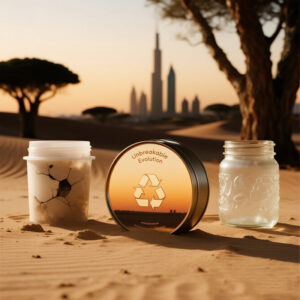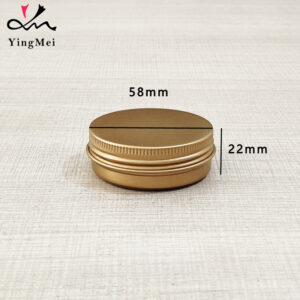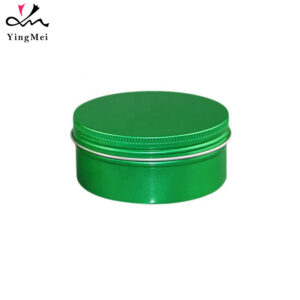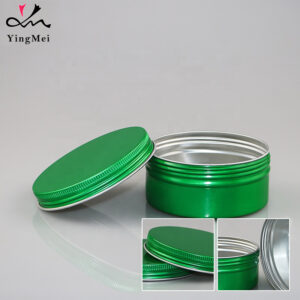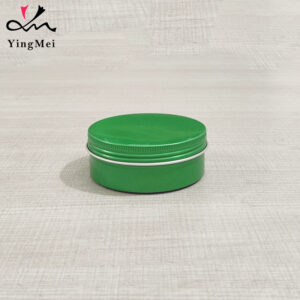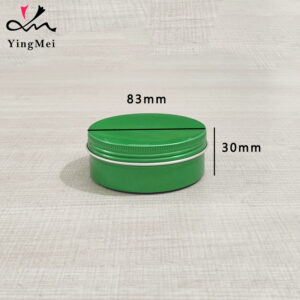You see them everywhere. On the shelf at the health food store. In a package from your favorite cosmetic brand. You might even have a few in your own home holding spices or homemade creams. Aluminum jars are simple containers. But their impact on product safety, shipping costs, and the environment is significant.
Many brands now choose aluminum. They move away from plastic and heavy glass. This guide explains everything you need to know about алюминиевые банки. We will cover what they are, how they are made, and their many uses. You will learn the real benefits and the potential problems. This information will help you decide if aluminum is the right choice for your products.
What Exactly Are Aluminum Jars?
An aluminum jar is a container made from the metal aluminum. It is a straightforward packaging solution. People value it for its light weight and strength. These jars protect contents from light, air, and moisture. They are a common choice for many different industries.
The Material: More Than Just Metal
The aluminum used for jars is not pure aluminum. Manufacturers use specific aluminum alloys. An alloy is a mix of metals. It enhances certain properties. For example, alloys add strength or flexibility. This makes the jars durable for shipping and daily use. The raw material for aluminum comes from bauxite ore. The process to refine it is energy intensive. This is why recycling aluminum is so important. It saves a huge amount of energy. We will discuss that more later.
The Construction: How They Are Made
Most aluminum jars have a seamless body. They are often made using a process called impact extrusion or deep drawing. A small puck of aluminum, called a slug, is struck with a high pressure punch. This forces the metal to flow up and around the punch, forming the body of the jar in a single piece.
This seamless construction is a key feature. It means there are no weak points or seams along the sides or bottom. This greatly improves the jar’s strength and integrity. It is less likely to leak or break at a seam because there are none. The top of the jar then has threads formed into it. This allows a screw on lid to create a secure seal.

The Core Benefits of Using Aluminum Jars
You have many packaging options. Aluminum offers several distinct advantages. These benefits address modern consumer demands for quality, convenience, and environmental responsibility.
Unmatched Durability and Protection
Aluminum is strong. It provides excellent protection for the items inside. The metal body shields contents from physical damage during shipping and handling. Dropping an aluminum jar is less likely to cause a total loss compared to dropping a glass one.
It also offers a superior barrier. Aluminum blocks 100 percent of UV light. Many products, like essential oils and natural creams, degrade with light exposure. Aluminum preserves their potency and extends their shelf life. It also blocks oxygen and moisture from getting in. This keeps powders from clumping and food items from going stale.
Lightweight for Easy Handling and Shipping
One of aluminum’s most famous properties is its low density. It is very light for its strength. An aluminum jar is significantly lighter than a glass jar of the same volume. This has two major benefits.
First, it improves the customer experience. A lightweight cosmetic jar feels good to handle and is easy to carry in a bag. Second, it reduces shipping costs. Lighter packages cost less to transport. For a business that ships thousands of units, this cost saving adds up quickly. A 2024 analysis shows that switching from glass to aluminum can reduce shipping weight by up to 50 percent, directly lowering fuel consumption and transportation costs.
“For my line of botanical salves, aluminum is the only choice. It protects the delicate ingredients from light and air. The lightweight feel also adds a premium touch without high shipping costs.” – Marcus Thorne, Founder of Thorne Botanicals.
A Commitment to Sustainability
Sustainability is a major concern for consumers. Aluminum packaging performs very well in this area. It is 100 percent recyclable. It is also infinitely recyclable. This means it can be melted down and reformed into new products over and over again. It does not lose its quality during the recycling process.
Recycling aluminum uses about 5 percent of the energy needed to produce new aluminum from bauxite ore. This results in a massive reduction in greenhouse gas emissions. The global recycling rate for aluminum beverage cans is high, and similar principles apply to jars. External Link: The Aluminum Association provides extensive data on aluminum’s recycling benefits. Choosing aluminum sends a clear message to your customers. It shows that your brand values environmental stewardship. [Internal Link: Learn more about our sustainable business practices].
Preserving Freshness: Airtight and Odor Proof
Many aluminum jars come with lids designed for a tight seal. These lids often contain a liner. The liner is a small disc of material like polyethylene foam. It presses against the rim of the jar when the lid is closed. This creates an airtight seal. An airtight seal prevents air from entering and odors from escaping. This is vital for products like coffee, tea, and spices. It keeps them fresh for longer. It is also important for strong smelling products like salves or balms. The container keeps the scent contained.
Common Uses Across Industries
The unique properties of aluminum jars make them useful in many fields. Their versatility is one of their greatest strengths.
The Food and Beverage Sector
In the food industry, aluminum jars are perfect for dry goods. They are a great choice for packaging premium spices, loose leaf teas, and gourmet coffee beans. The light and air barrier protects the flavor and aroma of these sensitive products. You can also find them used for powders, supplements, and specialty candies. Their clean, modern look appeals to customers on retail shelves. [Internal Link: See our full line of food safe containers].
Cosmetics and Personal Care Products
The cosmetic industry heavily uses aluminum jars. They are ideal for a wide range of products. You will find lip balms, body butters, solid perfumes, and face creams packaged in aluminum. The material feels premium to the touch. It also protects complex formulations from degrading. Small aluminum jars are very popular for sample sizes and travel kits. Their durability makes them a reliable choice for consumers on the go.
Pharmaceuticals and Nutraceuticals
Protection is the top priority in the pharmaceutical world. Aluminum jars provide a safe and stable environment for ointments, balms, and powders. They are also used for packaging supplements and vitamins. The opaque nature of the metal ensures that light sensitive compounds remain effective. For non liquid products, aluminum is a secure and professional option.
DIY and Home Projects
Aluminum jars are a favorite among hobbyists and small businesses. People who make their own candles love them. The metal handles heat well and is very safe. They are also perfect for homemade salves, lotions, and other concoctions. Crafters use them to organize small items like beads, buttons, and glitter. Their reusability makes them a cost effective and eco friendly choice for all kinds of projects at home.
Industrial and Specialty Applications
Beyond consumer goods, aluminum finds use in industrial settings. Small jars can hold samples of lubricants, greases, or powders for testing. They can package specialty waxes or adhesives. Their chemical resistance and strength make them suitable for containing a variety of non corrosive industrial materials.
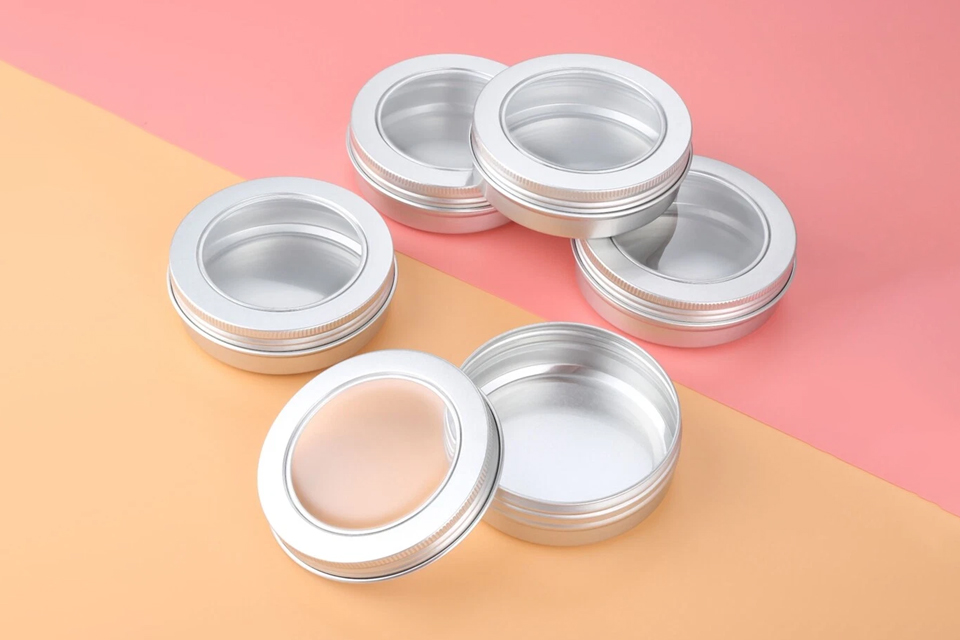
Choosing the Right Aluminum Jar for Your Needs
Not all aluminum jars are the same. Selecting the correct jar requires you to think about size, lids, and finish. These choices will affect your product’s performance and appearance.
Understanding Different Sizes and Capacities
Aluminum jars come in a huge range of sizes. They are typically measured in milliliters (ml) or ounces (oz). Small jars, like 5ml or 10ml, are great for lip balm or product samples. Mid sizes, like 60ml (2oz) or 120ml (4oz), are common for creams and candles. Larger sizes are available for storing bulk goods like tea or coffee. You should choose a size that comfortably fits your product volume. Leaving too much empty space, or headspace, can allow for more air inside, which might affect some products.
Lid Types and Sealing Mechanisms
The most common lid type is the continuous thread screw on lid. It provides a reliable seal and is easy for consumers to open and close. As mentioned, many of these lids include liners to improve the seal.
There are different types of liners. A standard foam liner provides a good seal for dry goods and thick creams. An induction seal offers a tamper evident, airtight seal. This type of seal has a foil layer that is bonded to the jar’s rim using a special machine. The customer must peel it off to access the product. This provides extra security and is common for food and pharmaceutical products.
Finishes and Customization Options
The look of your jar is part of your brand identity. Aluminum can be finished in several ways. A standard finish is plain silver aluminum. It can be shiny or have a brushed texture.
You can also choose colored aluminum. This is often done through a process called anodizing. Anodizing creates a very durable, colored finish that will not chip or peel. It is a premium option that makes products stand out. You can also apply labels to the jars or print your branding directly onto the lid or body. Direct printing offers a sleek, professional look. [Internal Link: Explore our custom branding options].
Potential Downsides and How to Address Them
Aluminum is a great material, but it has limitations. It is important to be aware of them. This allows you to make informed decisions and prevent problems.
Dents and Scratches: A Reality
While aluminum is strong, it is also a relatively soft metal. This means it can dent if dropped or hit with enough force. The jars can also get scratched. This is usually a cosmetic issue. It does not typically compromise the jar’s ability to protect the contents. To avoid this, you should ensure products are packed securely in shipping boxes with adequate cushioning. For a premium product, you might consider using an outer box for individual jars to keep them pristine.
Product Compatibility: What to Avoid
Aluminum can react with very high or very low pH substances. This means you should not use plain aluminum jars for highly acidic products, like some tomato based sauces, or highly alkaline products, like certain industrial cleaners. The reaction can corrode the aluminum and spoil the product. For such products, you would need a jar with a special protective inner lining. Most creams, balms, powders, and oils are near neutral pH. They are perfectly safe to store in aluminum. Always test your specific product with the container to ensure there are no reactions. External Link: Learn more about material compatibility from a chemical resistance chart.
The Myth of Being Completely Leak Proof
An aluminum jar with a good liner creates an excellent seal that is airtight and odor proof. However, it may not be 100 percent leak proof for all liquids. Thin, low viscosity liquids like water or some oils might seep through the threads if the jar is turned on its side for a long time. For very thin liquids, a bottle with a different type of cap might be a better choice. For most products like creams, salves, and balms, this is not an issue at all.
The Future of Aluminum Packaging
The demand for sustainable and high performance packaging continues to grow. Aluminum is well positioned for the future. Market trends for 2025 show a projected 5 percent annual growth in the use of aluminum for rigid packaging, driven by consumer preference for recyclable materials.
“Consumers in 2024 demand more than just a good product. They want sustainable packaging. Aluminum’s high recyclability rate is not a bonus. It is a core requirement for brands that want to succeed.” – Dr. Elena Vance, Sustainability Packaging Institute.
Innovations in Aluminum Alloys
Researchers are constantly working on new aluminum alloys. Future jars might be even lighter and stronger than they are today. These new alloys could reduce the amount of material needed per jar. This would lower costs and further improve the environmental profile of the packaging.
The Circular Economy and Aluminum
The concept of a circular economy is gaining momentum. In this model, materials are not thrown away. They are reused and recycled continuously. Aluminum is a perfect fit for a circular economy. Its infinite recyclability means it can be part of a closed loop system. Some companies are already exploring programs where customers can return their empty jars to be sterilized and refilled or recycled directly.
Your Questions Answered: FAQ Section
Here are answers to some common questions about aluminum jars.
Are aluminum jars safe for food?
Yes, they are generally safe for storing many food items, especially dry goods like spices, tea, and coffee. For acidic foods, it is best to use a jar with a food grade protective lining.
Can you put aluminum jars in the microwave?
No. You should never put any metal, including aluminum jars, in a microwave oven. It is extremely dangerous and can cause a fire.
How do you clean aluminum jars?
You can wash them by hand with warm water and mild soap. Avoid using abrasive scrubbers, as they can scratch the surface. Be sure to dry them completely to prevent water spots.
Are aluminum jars better than glass or plastic?
Each material has its pros and cons. Aluminum is lighter than glass and more protective against light. It is more recyclable than most plastics. Glass is non reactive with all products. Plastic is often the cheapest option but has significant environmental drawbacks. The “better” choice depends on your specific product and brand values.
Can you recycle the lids too?
Yes, the aluminum lids are recyclable along with the jar. It is best to check with your local recycling facility for their specific guidelines. Some prefer the lid to be removed, while others do not.
What is the difference between aluminum and tin?
People often use the term “tin” to describe small metal containers. However, most of these containers today are actually made of aluminum or tin plated steel. Aluminum is a lightweight element. Tin is a different, heavier metal. The small, silver jars you see for cosmetics are almost always aluminum.
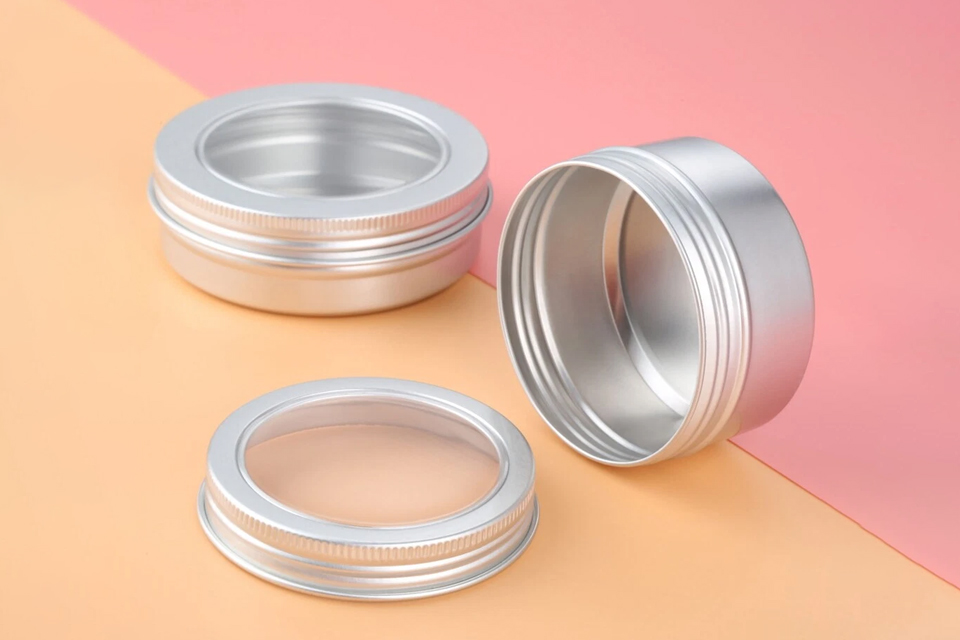
The Clear Choice for Modern Packaging
Aluminum jars offer a powerful combination of benefits. They are durable, lightweight, protective, and highly recyclable. They meet the needs of businesses looking for cost effective shipping and premium branding. They also meet the demands of consumers who want products that are safe, effective, and environmentally responsible. While you must consider their limitations, their advantages are clear. For a huge range of products, from food to cosmetics, aluminum is an excellent packaging choice.

